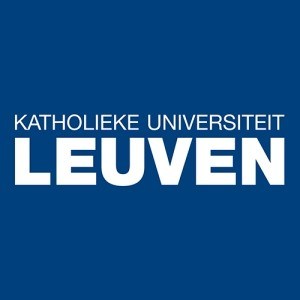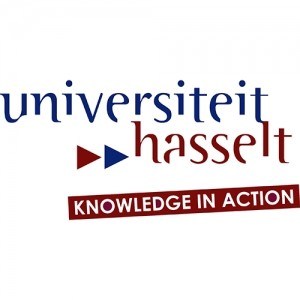Photos of university / #kuleuven
The Master of Astronomy and Astrophysics at KU Leuven offers an in-depth exploration of the universe, combining theoretical knowledge with practical research skills. This comprehensive programme is designed for students who are passionate about understanding the fundamental workings of celestial bodies and cosmic phenomena. Throughout the programme, students will gain a solid foundation in physics, mathematics, and astronomy, enabling them to analyze and interpret astronomical data effectively. The curriculum covers a wide range of topics, including stellar evolution, galactic and extragalactic astrophysics, cosmology, and planetary sciences.
Students will have the opportunity to engage in cutting-edge research projects, often in collaboration with leading international institutions. The programme emphasizes the development of critical thinking, problem-solving, and computational skills necessary for a professional career in academia, research, or industry. Practical laboratories and observational activities are integrated into the courses, providing hands-on experience with astronomical instrumentation and data analysis techniques. The programme also prepares students for doctoral studies in astrophysics or related fields.
With access to state-of-the-art facilities and astronomy laboratories, students can participate in observational campaigns using telescopes and contribute to ongoing research efforts. The interdisciplinary nature of the programme ensures that graduates are well-equipped to address complex scientific questions and adapt to technological advancements in astronomy. Graduates of this programme are prepared for careers in academia, research institutes, scientific outreach, and the aerospace industry, among others. The Master of Astronomy and Astrophysics at KU Leuven is an excellent choice for aspiring astronomers seeking to deepen their understanding of the cosmos and contribute to the scientific community.
Master's Thesis
Basic Courses
- Research Projects
- Stellar Structure and Evolution
- Galaxies and Cosmology
- Observational Techniques in Astronomy
- Relativity
- Radiation Processes in Astronomy
- Observational Astrophysics: Proposal Preparation
- Research Projects in Theoretical Astrophysics
- Research School in Observational Astronomy
Supplementary Courses
- Introduction to Plasma Dynamics
- Planetary Systems
- Binary Stars
- Star Formation
- Stellar Atmospheres and Stellar Winds
- Interstellar Matter
- Theory of Nucleosynthesis
- Plasma Physics of the Sun
- Computational Methods for Astrophysical Applications
- Asteroseismology
- Specialised Topics in Astronomical Techniques
- Space Weather
- Theoretical Seismology
- Physics of Planets
- High-Energy Astrophysics
- Early Universe Cosmology
- Science Communication & Outreach
- Science and Sustainability
Requirements
- Bachelor of Engineering Science
- Bachelor of Bio-Engineering Science
- Bachelor of Chemistry
- Applicants with a Belgian diploma: these applicants do not have to take an English proficiency test.
- Applicants with a university degree earned in Australia, Canada, Ireland, New Zealand, United Kingdom or the USA: the certified diploma and transcripts suffice, provided they confirm that the entire university study was completed in English. Absolutely no other diplomas will be accepted as evidence even if the applicant has followed an exclusively English-taught programme.
- Other applicants should submit a satisfactory score on an internationally recognized test of English language proficiency: TOEFL (minimum score 94 internet-based with at least 19 for reading, 18 for Listening, 19 for speaking and 21 for writing) or IELTS (minimum score 7 overall, whilst at least 6,5 for reading, 6 for listening, 6 for speaking and 6 for writing).
- Certified copies of transcripts and diplomas are required for all applicants. These documents also suffice for applicants from
* universities that have an exchange agreement with the Faculty of Science of KU Leuven
* universities that are in the global top 200 in the most recent Times Higher Education or QS rankings - A complete list of course titles for which you have obtained a credit should be part of this. Indicate the course size (in ECTS-credits) and the result you obtained, preferably according to the ECTS-scale; if a different scale is used, please provide an summary explanation on the meaning of the scores.
- For the courses that you deem most relevant as a preparation for the master that you are considering, provide a short (about one half to one page) description according to the standard guidelines for an ECTS-study guide.
Funding options for the Astronomy and Astrophysics program at KU Leuven primarily include government funding, scholarships, grants, and student loans. International students may be eligible for specific scholarships offered by KU Leuven or national and international funding agencies. The Flemish government provides a range of scholarships for both domestic and international students, which can cover tuition fees and living expenses. KU Leuven also participates in European funding programs such as Erasmus+, which facilitates student exchanges and mobility grants, supporting students financially during their studies abroad or in partnership with other European universities. Additionally, there are university-specific scholarships for high-achieving students, which can significantly reduce the financial burden of pursuing a degree in Astronomy and Astrophysics. Some programs may also offer assistantship opportunities, where students assist faculty with research projects in exchange for a stipend or tuition waiver. Private foundations and organizations occasionally provide scholarships for students pursuing scientific research, especially in the fields of physics and astronomy. Students are encouraged to explore the KU Leuven scholarship portal and external funding sources early in their application process to identify suitable funding schemes. Furthermore, KU Leuven offers guidance and advice on applying for external funding, including preparation of application documents and identifying suitable opportunities in both national and international contexts. It is advisable for prospective students to contact the university’s student financial aid office to obtain detailed and personalized information about available financing options. Overall, funding for studies in Astronomy and Astrophysics at KU Leuven is accessible through a combination of institutional, national, and European sources, making it feasible for motivated students with different financial backgrounds to pursue this academic discipline.
The Bachelor of Science in Astronomy and Astrophysics at KU Leuven provides students with a comprehensive foundation in the fundamental principles of astronomy and astrophysics, combining theoretical knowledge with practical skills. The programme is designed for students who are passionate about understanding the universe, including its origins, structure, and evolution. Throughout the course, students explore a wide range of topics such as celestial mechanics, star formation, galactic dynamics, cosmology, and technological methods used in astronomical research. The curriculum integrates physics, mathematics, and computer science, enabling students to analyze astronomical data, develop simulations, and utilize advanced telescopic instruments.
Students benefit from KU Leuven’s state-of-the-art facilities, including laboratories and observatories, where they gain hands-on experience in observational techniques and data analysis. The programme emphasizes an interdisciplinary approach, encouraging students to collaborate across various scientific domains. The teaching staff consists of experienced researchers and academics actively involved in cutting-edge astronomical research, providing insights into current scientific challenges and discoveries.
In addition to core coursework, students have the opportunity to participate in research projects, internships, and fieldwork, fostering practical skills and professional development. The programme prepares graduates for careers in academia, research institutes, space agencies, or industries related to aerospace technology and data analysis. Furthermore, students are encouraged to develop critical thinking, problem-solving, and communication skills essential for scientific careers. After completing the bachelor's degree, students can pursue advanced studies in astrophysics or related fields, or enter the workforce with a strong foundation in scientific research and technical expertise.
KU Leuven’s Astronomy and Astrophysics programme is accredited and recognized internationally for its academic quality and rigorous training. It aims to nurture the next generation of scientists capable of making meaningful contributions to our understanding of the cosmos. The university also fosters an international environment, attracting students from various countries, which enriches the learning experience through diverse perspectives and collaboration opportunities. Overall, the programme offers an in-depth exploration of the universe through a carefully balanced curriculum, combining theory, observation, and experimentation, preparing students for future scientific endeavors and careers in space-related sciences.



